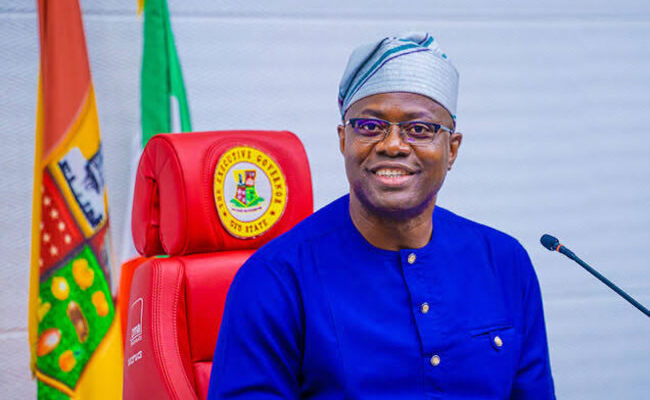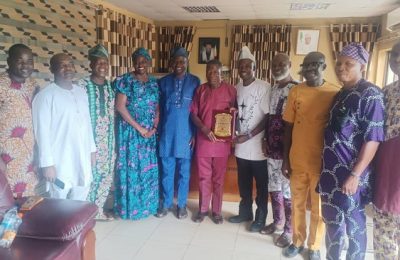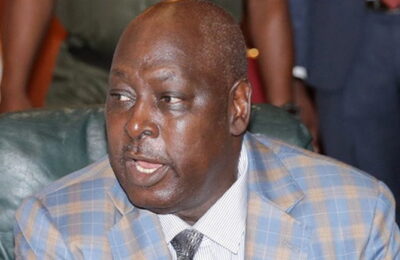With a week to the governorship election, KUNLE ODEREMI examines the usual voting pattern in Oyo State after presidential polls in past elections.
IT is another crucial week for Nigeria’s political landscape. As a matter of fact, some persons have borrowed the phrase, the ides of March to depict the significance of the governorship and state Houses of Assembly holding on March 11. It is one poll that will make some politicians and break the political careers of a number of others. This, some experts say, is particularly so because of the backlash of the February 25, 2023 presidential and National Assembly conducted in the country. For many of the kingmakers and their foot soldiers, the outcome necessitated infectious joy and excitement, while to others, the result of the poll was a serious blow and setback for their chequered political career. Many of those political juggernauts are resting their hope on the election petition tribunals for political salvation.
It is recalled that various individuals and groups came up with varying permutations before the February poll. A lot of the bookmakers were proved wrong in a number of places when the Independent National Electoral Commission (INEC) released the official results. The pyrrhic inroads (victory) of the Labour Party in traditional stronghold of the All Progressives Congress (APC) and the Peoples Democratic Party (PDP) altered the political configuration thus setting up the stage for a titanic battle next Saturday across the states, except Osun, Ondo, Kogi, Bayelsa and Anambra states where there were offseason governorship polls.

Again, many observers have come up with various projections on the election with a few pundits predicting a likely bandwagon effect of the February poll on March 11. Others contend that the character, conduct and personality of the candidates could be uppermost in the minds of voters, just other analysts foresee a collaboration among forces during the election because of the politics of 2027. More fundamental is the school of thought that since every politics is local, the history of past elections in a state cannot be ignored. Voting patterns have often been altered based on the convictions, whims and caprices of the majority of the discerning electorate. Oyo state is a typical example. It has presented different scenarios at major elections. In most circles, the outcome of the February election has set tongues wagging, with major stakeholders curious about the chances of the leading candidates for the March 11 governorship poll. The lineup of candidates for the election includes incumbent Governor Seyi Makinde as PDP candidate; Senator Teslim Folarin (All Progressives Congress), Adebayo Adelabu of the Accord, with each of them parading intimidating credentials. Facts are sacred, and going by the trajectory of elections in the state since 1999, many stakeholders are not in any way ruling out history repeating itself. They are of the view that certain factors that swayed voters in past governorship elections in the state taking preeminence and putting Makinde in better stead on Saturday.
In the February 25 presidential and National Assembly elections, the PDP produced winners in federal constituencies: Alhaji Najeem Oyedeji Oyeshina, Iseyin/Itesiwaju/Kajola/Iwajowa; Ojo Sunday Makanjuola, Ogooluwa/Surulere; Anthony Adebayo Adepoju, Ibarapa Central, Ibarapa North and Honourable Stanley Olajide, Ibadan Northwest/Ibadan Southwest. But this scenario pales into insignificance against the background of other general elections conducted in the state.

Trajectories of elections in Oyo

In the curve of elections in Oyo State since 1999, local dynamics have proved to be much more important to the majority of voters. Those factors have determined the shape and direction of elections, as well as influenced the preponderance of voters, and the trend has subsisted since 2011. A few instances will suffice. In 2011, former President Goodluck Jonathan won the presidential poll in the state. The then presidential candidate of the All Progressives Congress (APC), Major General Muhammadu Buhari received a total of 528, 620 votes to defeat President Jonathan of PDP, who got 303,376 votes. The total valid votes were 881,352, while the rejected votes stood at 47,254. Thus, the number of votes cast were 928,606 whereas, the accredited voters stood at 1,073,849. But Senator Alao-Akala (PDP) lost the governorship seat to the then Action Congress of Nigeria (ACN) to Senator Abiola Ajimobi.
A similar scenario played out in the 2015 election that brought Muhammadu Buhari to power after four futile attempts, but Buhari won with only 220,000 votes to the chagrin of many bookmakers. He polled 528, 620 votes to defeat President Jonathan of PDP, who received 303,376 votes. However, Governor Abiola Ajimobi won the governorship election, to secure a second term in office. He defeated former Governor Rasheed Ladoja of Accord Party by less than 30, 000. Yet, Ajimobi had no senator and house of representatives’ members. Other candidates in the governorship poll included: Alao Akala of the Labour Party, a former Senate leader, Teslim Folarin, of PDP and Seyi Makinde of the Social Democratic Party. The APC polled 327,310, Accord (254,520), LP (184,111), PDP (79,019) and SDP had 54,740 votes. For the House of Assembly elections, the APC won 14 seats, Accord Party (11) while LP won seven to constitute the 32-man assembly.
When Ajimobi defeated Ladoja with less than 30000 votes in 2015, he had no members in the Senate and the House of Representatives. He had the people behind him, in what shows the fluidity of the Oyo political environment.
In 2019, Makinde won convincingly in 28 Local Government areas of the state, while Adebayo Adelabu (APC) won in just five LGAs. Makinde secured 515,621 votes to beat Adelabu who polled 357,982 votes, in spite of the backing of the incumbent Governor Ajimobi.
That year, PDP won in Ibadan North West, Ibarapa East, Atiba, Kajola, Ido, Lagelu, Iwajowa, Afijio, Orelope, Ibadan North East, Ibadan South East, Ibarapa North, Atisbo, Ibarapa Central, Ogbomoso South, Ibadan North, Egbeda, Itesiwaju, Saki West, Saki East, Oyo West, Oyo East, Oluyole, Olorunsogo, Ona Ara, Akinyele, Iseyin and Ibadan South West LGAs. Adelabu secured just Orire, Ogooluwa, Surulere, Ogbomoso North, and Irepo LGAs of the state.
Payback syndrome
With seven days to the governorship, many bookmakers are already projecting the chances of Makinde and other leading candidates in the election. The camps of Makinde are upbeat on the chance of the governor based on the disposition of the camps of many stakeholders. There is a burning spirit of reciprocity and renaissance in the communities of most non-indigenes resident in the state. They are of the opinion that the governor has fostered inclusiveness such that the state has become their home. The politics of 2027 is also considered by bookmakers as part of the factors that could influence Saturday’s poll. Since the constitution only allows two terms of four years for governor, the calculation is that Makinde will only have the privilege of just four again. Therefore, the exalted office of governor will be open for grabs by another person and preferred choice of the people. It means that some politicians with a burning desire to be governor, whose ambitions have so far met the brick wall, will prefer a situation where the office of governor will be open to all serious contenders in 2027. To shore up their chances, they are bound to prefer to identify with Makinde whose tenure will lapse on May 27, 2027 if he secures a second term as governor. For serious politicians, the conclusion of the chain of every election season means they have to quickly return to the drawing board, the starting block in terms of strategy and plans for the next general election.
Beyond party politics and governance, Oyo State occupies a unique position on the issue of ethno-religious tolerance, accommodation and co-existence. This virtue accentuates the status of the state as the bastion of national harmony and concord. The state is the convergence of all religious faith, inclinations and practice. This tendency, many noted, has largely sustained peace and tranquility in the state, virtues that constitute critical ingredients for socio-economic growth and development. Co-existence among the various ethnic nationalities resident in the state, which is considered by some Nigerians as a mini Nigeria, political headquarters and cultural melting pot of the federation, places Oyo on a higher pedestal. This, according to some pundits, informs the favourable opinions of most citizens of the state about Makinde and rubbed on the February poll, with many looking beyond party affiliations, to identify with Tinubu. In the view of Chief Jolaoso Adeleke, a business tycoon and activist, “Makinde’s guiding philosophy is equity, fairness and justice for all. From empirical evidence, he is still the preferred choice among most artisans, traders and other categories of people in the informal sector of the economy.” A mechanical engineer with a foreign firm based, Alhaji Shittu Balogun shares a similar disposition with the governor. He believes that Makinde has succeeded in raising the bar of governance by giving the government a human face. He cited a few instances to buttress his position: spread of infrastructure; security of lives and property and taking steps to revive agriculture.
Teachers and pensioners believe they have never had it so good under any other civilian administration in the state. The governor also appears to enjoy the support of the majority of the 18 political parties, especially those categorized as fringe parties. There is also a claim that some influential forces in the leading parties have a soft spot for Makinde because of the openness and inclusivity in his government. Many people also credit the governor for the relative harmony and conviviality among the adherent of various religions in the state. According to most of his admirers, the governor has been able to achieve and sustain a seamless balance between the Christian and Islamic faithful.
One individual that is so confident about Makinde securing another mandate of four years is a commissioner in his cabinet, Mr Wasiu Olatunbosun. He says Makinde’s achievements over the past three and half years will make the people to re-elect him. He is the state Commissioner for Information, Culture and Tourism. He said the administration of Makinde is founded on four pillars: security, infrastructure, education and economic expansion through agriculture. In all these areas, according to the commissioner, the governor has kept faith with the people. He stated: “In fact, what the governor has done within three and half years of his administration is more than what some of his predecessors had done. For instance, when we came in, within 100 days in office, Makinde bought 100 units of KIA vehicles for security agencies.
“Apart from that, we have bought another 100 units of patrol jeep vehicles and bullet proof jackets for security agencies.” He explained how the governor has succeeded in restoring smiles to the faces of pensioners in the state. He said the administration has paid over N181 billion so far as gratuities against N81 billion paid throughout the eight years of the previous administration.
From available statistics, the governorship contest has largely been a local battle. Diverse factors combine to determine the preferred choice of voters. But, one outstanding factor that influences the voting pattern is the public perception of the individual candidates and their antecedents. Thus, all eyes seem to be on Makinde as the countdown to March 11 peaks. This is due to the preponderance of his support base among the critical mass of the people, coupled with his bottom-top governance style and walking the talk as contained in his manifesto and electioneering promises.
READ ALSO FROM NIGERIAN TRIBUNE








